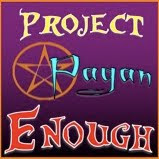I posted this to my Facebook Wall, where it produced a really interesting comment thread. So, I thought I'd post it here, and see what folks think.
"The other advantage of praying in Hebrew without understanding it is that it spares you the temptation to argue with the prayer book." Harold Kushner, in To Life!: A Celebration of Jewish Thinking and Being, pp. 201-202.
(I said, "Yeah, right!!")
Thursday, 29 October 2009
Subscribe to:
Post Comments (Atom)







4 comments:
The whole reason for having a "belief" is so that you can live life free from annoying "facts."
Liz Pagan
In my former life as a Pentecostal, I found that praying in a language I didn't understand helped to open my heart to express the feelings that were just too deep and wide for words.
Other Wise
That also only works until you learn Hebrew.
But there is a truth to it: praying in a tradition or community means praying with people (present and/or past) other than oneself, entering into a sacred space which will be filled with words other than one's own, with which one might disagree. Part of the art of praying is learning to encounter those other words in a way that is not-arguing. I don't think that not understanding them is always, or ever, the best way of doing that, though...
Liz - LOL! That's one of the reasons being a Witch is such a good fit for me, and being a Quaker, too. I don't "have" to believe anything I can't verify with my own experience.
And, Goddess knows there's a fine old tradition in Judaism of non-theism!
OtherYs - I can kind of see that; but for me, the issue of making sure I'm speaking something that's true for me gets in the way. Perhaps it would be different if I were prompted by the Spirit to speak words in a language I don't understand; but to read set prayers from a prayerbook when I might be lying in doing so offends my soul, both as a Witch and as a Friend. In Witch-language, I would say it's b/c words have power, and b/c the ability to do magic, to be in tune with the Goddess, depends deeply on the integrity of one's words and actions. In Quakerspeak, I would say that praying in a language I don't understand violates the Testimony of Integrity for me. But I'm intrigued by what you've said, and want to think more about it; initially, it resonates for me in how singing helps me be open to and present with things that are too much for mere words...
Orawnzva, bingo. As my friend Chaia pointed out, "'Baruch shelo aseni isha' my f-ing a--!" ('Blessed is He who did not make me a woman.')
I am finding that, while I still can't say 'Baruch atai Adonai,' I have come to a place where I can be in community with those who do, and honor what being able to say that means for them. I have a friend who's a feminist, atheist, Pagan Jew, who insists on traditional male Jewish blessings, b/c for her that's the connection with her family and her ancestors. I can now be more present with her with that, even if I can't say it myself. But like you, I much prefer knowing what the words mean, and coming to a place of not-arguing, than not knowing what they mean and thus avoiding the temptation to argue.
And how is avoiding argument, especially about G-d, substantially Jewish, anyway? ;-)
Post a Comment